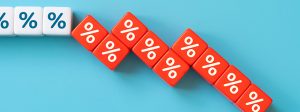Answers to common mortgage questions.
What are Discount Points?
Discount points are fees paid directly to the lender at closing, in exchange for a reduced interest rate. Mortgage points come in two variations, discount points and origination points. One point will generally cost 1% of the total amount that is loaned. Paying for mortgage points is a fairly common practice. A benefit to paying points is to “buy down” your long term interest rate which could save you thousands of dollars. A single point will generally reduce the interest rate on your mortgage by .25%.
What is the difference between my interest rate and APR?
The interest rate is the cost you will pay each year to borrow the money, expressed as a percentage. It does not reflect fees or any other charges you may have for the loan. The APR or annual percentage rate, on the other hand, is an accurate measure of the real cost of borrowing money. The APR reflects not only the interest rate but also any points, mortgage fees, and other charges that you may pay to get the loan.
What is an appraisal?
An appraisal is an unbiased professional evaluation of your home’s value. If you need a mortgage to buy a new home or take cash out from a refinance, a professional appraisal will likely be mandatory.
Can I consolidate credit card debt when refinancing my home?
With a cash-out refinance, homeowners can consolidate high-interest, non tax-deductible debt. Since your mortgage interest rate is usually much lower than rates on credit cards, consolidating debt may reduce your overall monthly debt payments. In addition, your mortgage interest may be tax-deductible, unlike your high interest credit card debt.
What is PMI?
If you’re refinancing your first mortgage, and have less than 20% equity in your home, private mortgage insurance or PMI, is typically required. The mortgage insurance premium is typically included in your monthly mortgage payment. Some programs allow for the PMI to be cancelled when your LTV (loan to value) reaches 80%.
Are there mortgage programs available for first time home buyers?
Yes.
First, there is an FHA home loan. With an FHA loan, the Federal Housing Administration insures the mortgage. FHA loans have competitive interest rates, smaller down payment requirements and lower closing costs than conventional loans. If you have a credit score of 580 or higher, you could be eligible for a mortgage with a down payment as low as 3.5 percent of the purchase price.
The U.S. Department of Veterans Affairs (also known as the VA) provides home loan benefits for active-duty military members, veterans and surviving spouses. VA loans have very competitive interest rates and require no down payment.
Fannie Mae has the HomeReady program which is ideal for first time or repeat borrowers with low to moderate income, who may have limited funds for a down payment. Unlike government insured mortgages, HomeReady borrowers may have the option to cancel their mortgage insurance once their home equity reaches 20%. Cash for the down-payment and closing costs may come from multiple sources, including gifts and grants, and no minimum personal funds are required.
Freddie Mac’s HomePossible program requires only a 3% down payment, and borrowers without credit scores are eligible for a 5% down payment option. Just like the HomeReady program, borrowers using the HomePossible program may also have the option to cancel their mortgage insurance once their home equity reaches 20%. Cash for the down payment may also come from multiple sources.
The Good Neighbor Next Door program, which is sponsored by HUD (The Department of Housing and Urban Development), provides assistance for police officers, firefighters, EMT and teachers.
The Energy-Efficient Mortgage (EEM), is a “green” mortgage, which is designed to help you add environmentally friendly home improvements. EEM loans are available from lenders who offer FHA or VA programs.
Local grants and programs provided by the federal government, and many states and cities, also offer down payment assistance to first-time homebuyers. Before buying a home, check your state’s or community’s website for information on housing grants and programs available in your area.
Which mortgage and homeowners costs are tax-deductible?
There are 3 types of mortgage and homeowners costs that may be tax-deductible, including: discount points, interest paid on a mortgage, and property taxes. The first year after you buy your house, only your mortgage interest and annual property taxes are deductible. For a refinanced loan, points must be deducted over time. Consult your tax advisor for advice on how to claim all of your available deductions.
Can I buy a home if I have average or below average credit?
Yes. Ark Mortgage looks at more than just your credit history. Your ability to pay in the future is also highly considered. Nevertheless, there are many programs that are backed by the federal government that are available for borrowers with less than perfect credit.
How is my credit report used?
Your credit report is reviewed to determine how you handled your credit in the past. There are 3 major credit reviewers who will give you a free copy of your credit report:
Equifax www.equifax.com 1-800-685-1111
Experian www.experian.com 1-888-397-3742
TransUnion www.transunion.com 1-800-888-4213
How can I improve my credit score?
It is really important to your pay bills on time. Also, never “max out” your credit lines. Since the size of the balance on open accounts is a factor, lower balances are better. When balances exceed 30% of the available credit, you may see a dip in your credit score.
Your payment history and the amount you owe are the two most important components that make up your credit score.
- Waiting for the rate to fall
 How does the Fed rate cut affect mortgage rates? Or does it?
How does the Fed rate cut affect mortgage rates? Or does it? - 2026 Forecast: Right time to Buy?
 What does 2026 have in store for home affordability?
What does 2026 have in store for home affordability? - Homebuying as an Inflation Shield
 Interest rates may be stubborn, but inflation marches on. What can you do?
Interest rates may be stubborn, but inflation marches on. What can you do? - DSCR Rental Property Investment
 A great way to invest in residential real estate with a minimum of hassle.
A great way to invest in residential real estate with a minimum of hassle. - 6 Ways to Use a Cash-Out Refinance
 How to access and use home equity — even if you’re already in a low-interest primary loan.
How to access and use home equity — even if you’re already in a low-interest primary loan.





